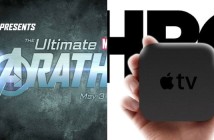Editor’s Note: Projecting features a selection of great film and television focused writing from around the internet.
Matt Patches uses Big Hero 6 as an excuse to dig into the makeup of Walt Disney Animation Studios and how the sensibilities haven’t really changed, for ScreenCrush:
The legacy part shouldn’t be a problem. There’s a rush of spirit upon entering the Walt Disney Animation offices. The studio is a utopia. Not just on the surface, which looks like a cross between ‘Logan’s Run,’ Willy Wonka’s factory, and the Google offices in ‘The Internship,’ but in its mechanics, too. Everyone’s courteous, everyone’s passionate, everyone’s a workhorse, everyone loves everyone. It’s like walking into a giant hug.
Tasha Robinson explores the freedom of the irredeemable protagonist, for The Dissolve:
That’s what gives Starred Up its vivid, thrilling energy: the sense that its protagonist is so far beyond redeemable that viewers can stop worrying about whether he can, or will, be redeemed. And with that familiar arc off the table, all bets are off as to where, and how far, the story will go. Taking Eric outside the usual hero/villain templates gives screenwriter Jonathan Asser (who based the story on personal experience) an immense and rare freedom to push his story in virtually any direction.
Nick Schager pushes aside the vitriol to explain why cinematic crowd-funding is a good thing, for Complex:
And yet, there’s nonetheless something heartening about this ongoing crowd-funding phenomenon that’s divorced from the director’s own behavior—which, for Zombie, also includes giving away movie and music memorabilia, props, and other assorted goodies to investors in 31 (including meet-and-greets with Zombie himself, a role as an extra in the film, and lifetime backstage passes to his concerts). And that’s because regardless of whether Zombie actually needs financial aid from loyal die-hards to complete the film, or is just exploiting their devotion for profit, his fans’ eagerness to monetarily back him confirms not only that cine-fandom is as healthy as ever, but that pop-culture consumers still value content enough to pay for it.
Alex McCown defends the use of the term “guilty pleasure,” for AV Club:
But by and large, mainstream culture has increasingly acknowledged that any kind of art, from graffiti to EDM, can be great if it possesses a worthwhile artistic vision. And as a consequence, Szalai notes, we are losing “middlebrow culture,” that strange admixture of high and low art, in which the American people were encouraged to broaden their intellectual palate to make up for all the trashy pop culture they consume—to mix in some opera and poetry with their daytime soaps, essentially. And once postmodernism became the standard-bearer for mainstream culture, the idea of separating “good” and “bad” forms of art disappeared; we lost that need to find “respectable” kinds of art to experience. A graphic novel has won the Pulitizer Prize, after all.




